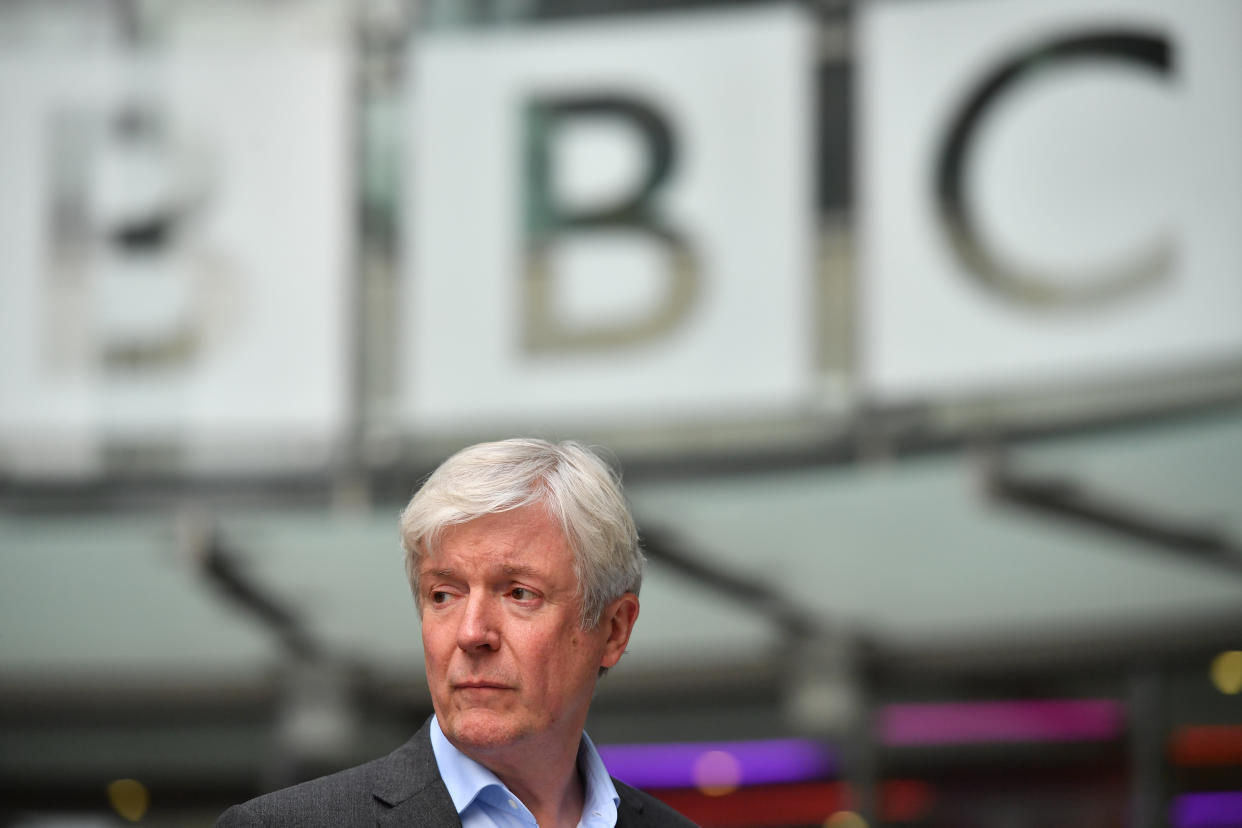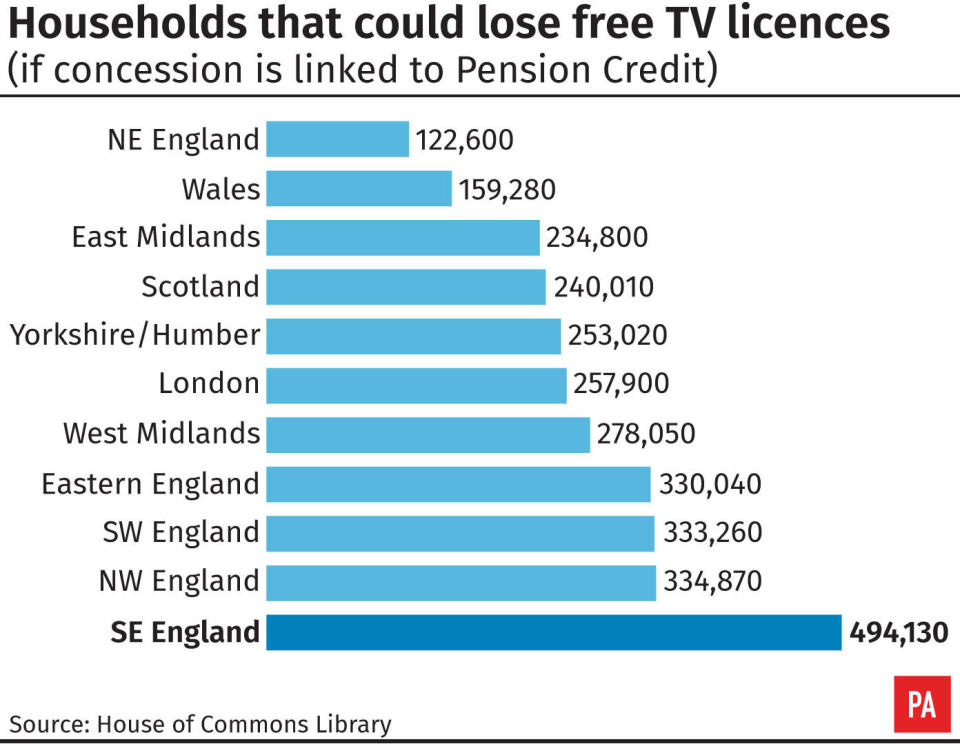BBC faces backlash over plans to scrap free licences for over-75s

The BBC’s decision to scrap free TV licences for most over-75s has provoked a furious backlash.
Critics have described the plan as another “nail in the coffin” for working class pensioners.
The new proposals, announced yesterday by the BBC’s director-general Lord [Tony] Hall will mean that from June 2020, only over-75s who receive pension credit will be eligible for a free TV licence.
This will mean that around 3.7 million households which previously received a free licence will have to pay for one.
Prime minister Theresa May’s official spokesman said: “We are very disappointed with this decision.
“We have been clear that we expected the BBC to continue this concession. We want the BBC to look again at ways of supporting older people.”
'Shame on the BBC for doing this, they should be forced to do a U-turn and cave on this.'@piersmorgan gives his thoughts on the BBC's decision to scrap free TV licences for pensioners. #GMB pic.twitter.com/HkSp8LFYTW
— Good Morning Britain (@GMB) June 11, 2019
Speaking on Good Morning Britain, presenter Piers Morgan asked: “You’re going to tax D-Day veterans to watch telly? Shame on the government for passing on the responsibility of licence fees to the BBC, and shame on the BBC for doing this, they should be forced to do a U-turn and cave on this.”
Scottish Tory leader Ruth Davidson, speaking to Morgan on the same show, said she would back a campaign to force the BBC to change their mind.
“If Good Morning Britain are going to make a campaign on this, then sign me up as the first person to back it,” she said.
The BBC was told that it could increase the licence fee if it covered free TV licences for over 75s. It now seems to have broken that deal
The BBC shouldn’t benefit financially from breaking that promise. I would ensure that all over 75s get the free TV licences they deserve— Esther McVey (@EstherMcVey1) June 10, 2019
Tory leadership contender Esther McVey claimed that the “BBC was told that it could increase the licence fee if it covered free TV licences for over 75s. It now seems to have broken that deal. The BBC shouldn’t benefit financially from breaking that promise. I would ensure that all over 75s get the free TV licences they deserve.”
Kate Hoey, the independent-minded Labour MP, tweeted that “all this will do is make the campaign to abolish the licence fee even stronger.”
However, the Scottish National Party criticised May’s government for having passed the decision on to the BBC.

“After years of Tory austerity, and the deep financial uncertainty of Brexit, the last thing our older people need is the extra burden of £154.50 to their household bills,” SNP culture spokesperson Hannah Bardel said.
“The UK government must U-turn on their broken manifesto promise and fully fund the TV licence for our older people.”
"We have been trying to find out what is fairest" - BBC director-general Tony Hall speaks about the decision to make free TV licence's only available to over-75s who receive pension credit.
Get more on this story here: https://t.co/E5wZBOdWAR pic.twitter.com/r7FRKgDKzu— Sky News (@SkyNews) June 10, 2019
Following a public consultation, the BBC decided that means-testing pensioners was the fairest way to implement the changes.
The broadcaster said those who are blind, regardless of age, are entitled to a 50% discount on the cost of a TV licence, which covers the whole household.
Salford residents Thomas Pevitt, 77, and his wife Alice, 78, who is registered blind, will pay for their TV licence when the new scheme comes into effect.
Mr Pevitt, who is a retired joiner, said: “At the moment, we don’t pay because we’re both over 75. We don’t receive pension credit.
“It will impact. Well, I think the working classes have been hit by this Government left, right and centre… Austerity only affects the working classes, it doesn’t affect the rich in any way, shape or form.”
Mr Pevitt, who retired 11 years ago, explained that the change to TV licensing came alongside increases to some other bills, and that this move was another “nail in the coffin” for living costs.
So who is to blame?
The policy of free licences was introduced in 1999 by then chancellor Gordon Brown. They were paid for by the government and the BBC administered the service.
However, after the 2015 election, David Cameron’s government brokered a deal with the BBC which saw them take on the £600 million cost of the free licences in return for being allowed to increase the license fee in line with inflation.
The BBC was later given the responsibility by the government to decide in future whether to revoke the benefit.
The BBC have just announced they plan to means test the free TV licence for over 75s. Their decision will cause many older people huge anxiety and distress. But this is the Government’s fault, not the BBC’s. It is open to a new Prime Minister to intervene: https://t.co/0qfLx6PALM
— Age UK (@age_uk) June 10, 2019
The BBC said if it had to fund licences for all over-75s, it would have meant unprecedented closures, including the end of BBC Two, BBC Four, the BBC News Channel, the BBC Scotland channel, Radio 5 Live, and a number of local radio stations, as well as other cuts and reductions.
Chairman of the BBC Sir David Clementi said: “Linking a free licence for over-75s to pension credit was the leading reform option. It protects the poorest over-75s, while protecting the services that they, and all audiences, love.
“It is the fairest and best outcome. It is one we can implement and endorse. This is an outcome that is the fairest possible in difficult circumstances.”
Those found to be ineligible for a free licence will have to pay £154.50 a year for a colour television and £52 a year for a black and white television.

 Yahoo News
Yahoo News 
